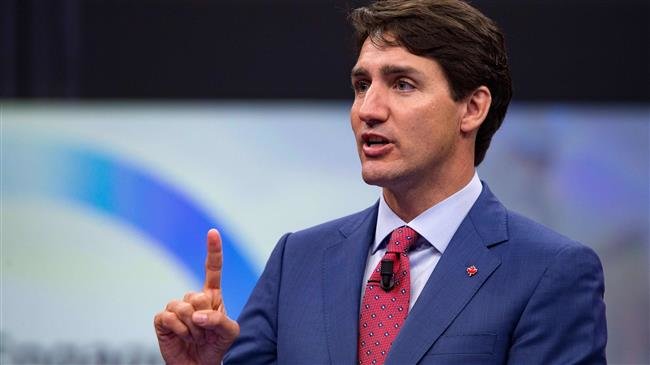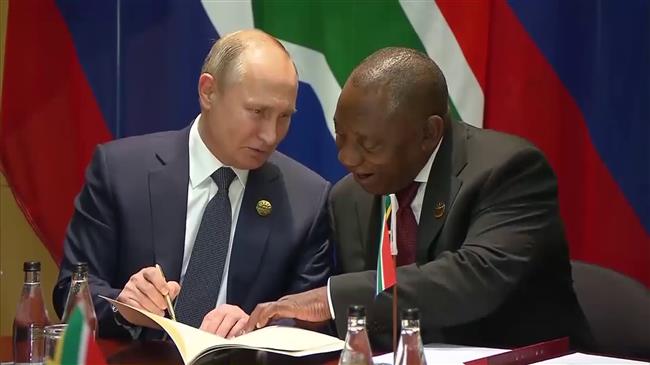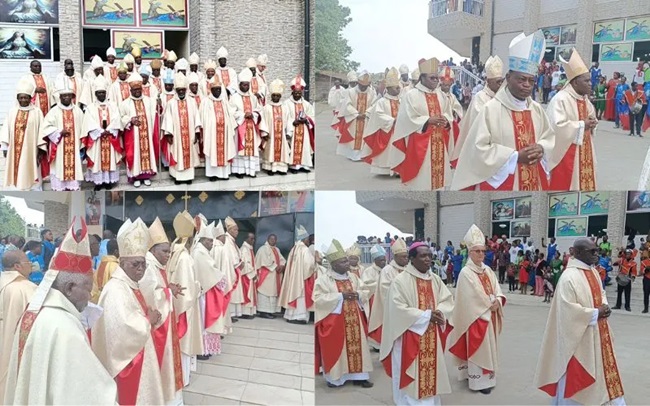21, October 2019
Pride of Africa: Stable Botswana to vote in rare cliffhanger 0
Botswana votes on Wednesday in the most closely fought general election in the history of the southern African country, long known as one of the continent’s most stable democracies.
Former president Ian Khama has shaken up the country’s traditionally calm politics by dramatically renouncing his hand-picked successor Mokgweetsi Masisi.
Khama left the ruling Botswana Democratic Party (BDP) in May, accusing President Masisi — who had been his deputy until last year — of autocracy.
The bitter feud has threatened to fracture the BDP, which has governed the diamond-rich country since it gained independence from Britain in 1966.
The split came after the ruling party saw its share of the vote fall below 50 percent for the first time in the last elections in 2014.
It has faced an increasing challenge from a coalition of opposition parties, the Umbrella for Democratic Change (UDC), which has added another group to its ranks since the last election.
“It’s the most contested election we have seen, and genuinely the outcome is in doubt to some extent,” said Botswana economic analyst Keith Jefferies.
“It’s possible that the BDP could be unseated.”
The UDC has received a boost from an unlikely source: Khama.
The opposition group was his fiercest critic when he was president, but Khama has urged voters in many regions to cast their ballots for the UDC in a bid to oust Masisi and the BDP.
Khama’s father co-founded the BDP and served as the country’s first president. He retains plenty of influence, particularly in the central region — a BDP stronghold — where he is a traditional chief.
– Khama ‘the wild card’ –
The rift between the president and his predecessor started last year, when Khama resigned near the end of his constitutional limit of two five-year terms.
Khama handed the reins to Masisi in April 2018, 18 months ahead of the next election, as part of the BDP’s carefully crafted process for transferring power.
But Masisi quickly started reversing several of Khama’s key policies, including lifting his ban on elephant trophy hunting, infuriating his predecessor.
Peter Fabricius, an analyst at the Pretoria-based think tank Institute of Security Studies, said “Khama is the wild card”.
“This is quite a close election and it could go either way,” he added.
Masisi told AFP that Khama’s policies had hurt the ruling party.
The BDP is “definitely going to perform far better” without Khama, Masisi said, predicting an “overwhelming victory, landslide”.
UDC leader Duma Boko was also confident, telling AFP: “I think we will win this election and we should”.
Voter Alice said: “It’s time for a new government, enough of the BDP”.
“Things are not right in our government… the corruption is just too much,” she told AFP, asking to be identified only by her first name to protect her job.
– ‘We are never going to fight’ –
The unprecedented political drama has raised fears that Khama’s defection could unsettle Botswana after more than five decades of peace and stability.
But Masisi ruled out any such scenario, urging everyone to “accept the results” of the vote.
“I have already accepted the results whatever might come,” he told AFP.
“Botswana is never going to be in crisis if one person wins or the other doesn’t win, there will be another opportunity.”
“We are never going to fight,” Masisi said, adding that stability is in the DNA of Botswana’s people.
But past elections have never been this close. If the opposition wins, the country’s democratic credentials and reputation for good governance will face a new test — a peaceful transfer of power.
Analysts said a BDP loss would be unlikely to send people into the streets. However, they did warn that an unexpected landslide for the ruling party could spark opposition protests claiming the election was rigged.
Duma said at the weekend that the vote would not be free and fair because of unbalanced media coverage by the public broadcaster.
Nearly half of Botswana’s 2.2 million people are expected to cast their ballots in the parliamentary and local elections.
The BDP, UDC and two smaller parties will vie for 57 parliamentary seats. The party with the most seats chooses the president.
Thanks to Botswana’s diamond-spurred wealth it is ranked as an upper-middle-income country, but it has one of the world’s highest rates of income inequality.
Source: AFP































21, October 2019
Biya’s plan of francophonising Southern Cameroons won’t materialize 0
The Ambazonia Vice President Dabney Yerima says the successful launch of the Amba Bonds Project will stifle French Cameroun’s plan of francophonising the Federal Republic of Ambazonia.
The exiled leader made the comments in Holland late on Sunday observing that the “plans to give Ambazonian the so-called special status will fail, and Southern Cameroonians will never allow French Cameroun occupation forces to implement Biya’s plots and change the character of British Southern Cameroons.”
The top Ambazanian official also emphasized the necessity for every Southern Cameroonian to stick to the wise and courageous Amba Bonds Project to confront French Cameroun atrocities in Ambazonia which he described as the core of the Southern Cameroons conflict.
Comrade Dabney Yerima further pointed out that despite all the challenges within the Ambazonia Interim Government, Southern Cameroonians were heading toward victory. He saluted all Southern Cameroons Restoration forces for standing in the face of French Cameroun occupation.
By Soter Tarh Agbaw-Ebai in Holland